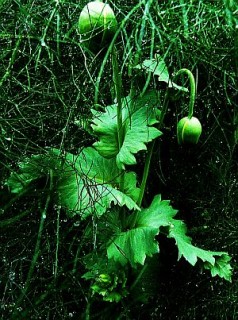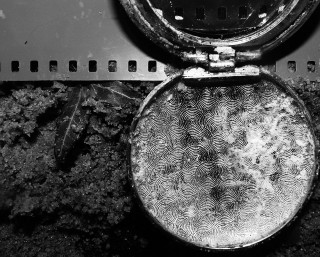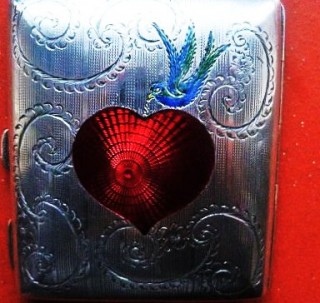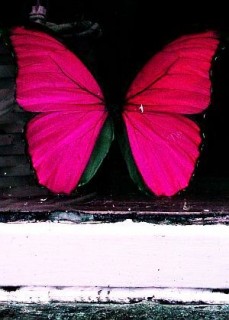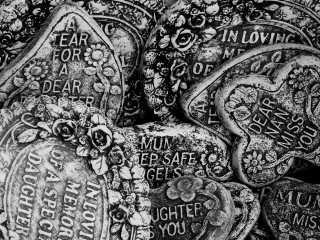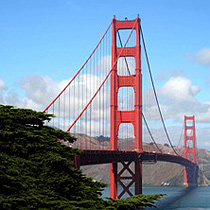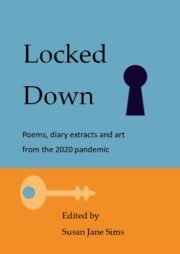• Archive of all Poetry Space showcases
Chosen by guest editor Margaret Eddershaw.
Margaret Eddershaw: “This poem captures so clearly that moment and underlines the recurring thought with effective repetition”.

A MAGIC MOMENT
A sudden look
sending a frisson through my veins
unexpectedly
coming from nowhere.
I missed you
when you were away.
Just friends we’ve been –
that’s all.
A sudden look
turns everything around,
no words, no sound,
a silent streak –
chemistry
from you to me
that cannot be explained –
that’s all.
June Moore
May morning
Margaret Eddershaw: “The dialogue form, with questions by a second voice, allows this poem to grow, and for the writer’s wonder at the increasing greenness to be experienced by the reader”.
Wake up one morning and
it’s wall-to-wall green – Green?
As in bottle, malachite, jade,
only the yellowing edge of cloud,
the grey of sky, a backdrop.
Overnight? Absolutely true –
from bone-bare branches to
the blowsy richness of spring,
the plain-and-purl fields,
the unravelling of birdsong.
Impossible! Look – green
as far as the eye can see,
grass luminescent in first light,
layer upon layer of leaves
softening every tree-shape.
You on speed, or something?
No need – simply open your
window, breathe the early air
and give free rein to colour,
as in lime, chartreuse, viridian.
You mean green?
Yes, green.
Moira Andrew
Pearl Mussels
Margaret Eddershaw: “This poem expresses so well the simplicity and power of the pearl itself”.
snap shut like a locket.
Unhinge them
and their inner surface
is Bizet-bright:
a single orb
of necklace glitter
cocooned like a babe
inside.
Neil Leadbeather
Deserted beach
(after ‘Beach umbrella’ by David Hockney)
Margaret Eddershaw: “This is a powerful response to the Hockney painting that goes beyond mere description (the downfall of many poems about art); the poet’s precise and effective
words evoke strong feelings”.
It’s one of those days
when fierce yellow heat
burns the soles of your feet
and takes your brain away.
Even the gulls are silent,
the sea a blink of blue
no boats at anchor, an
afternoon in lock-down.
A rush for shade leaves
footprints on the sand, a lone
umbrella gasps for breath, gaudy
stripes bleaching in the sun.
No laughter, no bickering
children – only the umbrella’s
shadow, a black arrow aimed
at the fevered shoreline.
Moira Andrew
Rebirth
Margaret Eddershaw: “The words here catch so precisely the marvel of the creature’s emergence from the chrysalis – the simple structure makes the reader hold her/his breath”.
like an autumn leaf
brittle crumpled grey
it’s trapped in sunlight
in the corner
of a classroom window
an eagle-eyed child
Look Miss, it’s moving!
the chrysalis trembles
tumbles splits
a tear in its carapace
one teacher five kids
breath stilled
to near-silence all eyes
on a shred of colour
one soggy wing – two
the creature shrugs
shivers pumps up
fiery wings flies off
into the afternoon
flaunting its warpaint
Moira Andrew
Tōhoku and Fukushima
Margaret Eddershaw: “This poem expresses so effectively, in explosive sequences of words, the power and significance of the earthquake and the subsequent tsunami”.
“The happiest man is he who learns from nature the lesson of worship.” – Ralph Waldo Emerson
For six minutes underwater the earth shook
east of Tōhoku’s peninsula.
Then came a great wave,
rushed high towards Honshu,
swept envenomed ten miles across the land.
Fukushima Daiichi could not stand in its way
its paltry walls overrun,
systems swamped.
Came untimely explosions
and outpourings of fear
hot reactions let into the air
and into the teeming ocean.
Six feet the deep bed dropped in a seismic epileptic second
bred enough to power Osaka or Nagoya for a year,
a bolt six hundred million times ill-fated Hiroshima.
In this wise, tectonic plate shifted four score feet towards Tōhoku
Earth’s axis altered
its tilt
rate of rotation
diurnal circle micro-seconds shortened.
If this be allegory
let Fukushima plant be man’s high hubris,
Tōhoku’s motion, Heaven’s wrath.
Antony Johae
… not ours to see
Margaret Eddershaw: “This gains its strength from deceptively simple phrases and the deployment of colours”.
to create contrast with the suppression of the aunt’s painful feelings.
The aunt would sing, Que Sera, Sera, Whatever will be will be, And she’d answer the
phone, Speedwell 1368, he’s dead and go back to the untidy drawing room waving a
duster, flitting round the brightly coloured champagne glasses – never to be raised
again – always wearing this orange cardigan,
hole in the elbow of the right sleeve and a
faded red rose blouse. Things are never what they seem.
In a corner of this room, never
touched nor dusted, the uncle’s umbrella, heavy and black, rolled up.
A sacrament to superstition. If he hadn’t left for his surgery
in such a hurry, if he hadn’t rushed back,
the sleet catching his voice, if he hadn’t opened it in the house
– she said he’d never have
had a cerebral haemorrhage, never have died that day. A straight spine with spokes.
Wendy French
Red Cracker
Margaret Eddershaw: “The poet brings this alive with all the ‘clicking’ consonants, that work against the notional softness of butterflies; and the echoes of human languages with ‘clicks’ (like
San, Hausa) cleverly enlarge the meaning”.
It’s the territorial display that sets them apart,
that curious “cracking” made by the male
to ward off other rivals.
In calico-butterfly-speak it says
“Keep off”
or, at least, that’s what the entomologists think
but no exact translation has yet been achieved.
All we know is that at the end of every
upward wing-stroke
-the moment when the wings are “clapped”-
so-called modified “r”-veins
meet at a speed of 1,420 millimetres per second
to produce the language of clicks.
It will take time to discover
if one click is much like another
or whether there is a dictionary of
red cracker sounds yet to be compiled.
This is where language begins.
Neil Leadbeater
The Procession
Margaret Eddershaw:”This slow, processional poem has the powerful quality of a beast-filled dream; it flows and reels in the reader”.
I push my grand-daughter to feed her air
Up down West Norwood Cemetery we walk
follow a West Indian procession
four Traditional Cob Stallions draw
a carriage with Joseph, cornflowers tell us
his name and mourners serious as clouds
overhead Isabella squeals with delight and shouts
Move faster faster faster Come one Move
so I have to draw back drop back
back from the crowd
there’s no escape from dreams
days no longer wanted – skies drift rains cease
tides catch the shore –
my long dead father pushes up his grave
Things happen or don’t happen, but
are there to be believed, dreams must tell something.
So what is this dream I hear when horses
don’t gallop away
stay nuzzling each other
as earth is dug heaved shovelled to one side
to finalise an ending
and then far away from the stallions here
are other horses who drift in and out
of dreams these beasts
who graze behind the whitewashed house
where
once we lived forty odd years ago hundreds
of miles from here horses turned out to grass
at three pm daily who if they could
see us coming would jostle to be first
at the fence.
Wendy French
About Margaret Eddershaw: After 25 years as an actor, director and university teacher of theatre, Margaret Eddershaw moved in 1995 to Greece, where she began writing poems. Since then she has had 150 poems published in anthologies and magazines, and presented four suites of performance poems at festivals and venues in London, Manchester, Lancaster, Chester, Bridport and Helsinki. Her first full collection Catching Light will be published by Poetry Space later this year.

